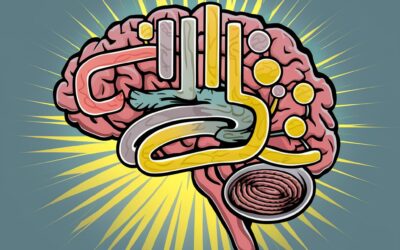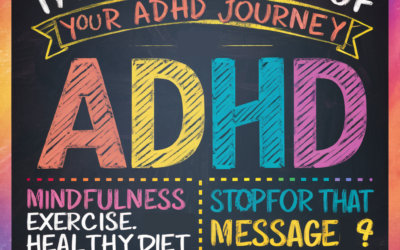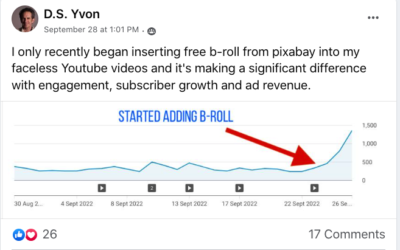Key Themes and Insights
Dr. Uma Naidoo's book delves into the profound impact of nutrition on mental health, shedding light on how specific foods can influence conditions like depression, anxiety, PTSD, OCD, ADHD, and more. The book emphasizes the importance of a holistic approach to mental health that includes dietary considerations. Through a comprehensive exploration of various nutrients and their effects on brain function, Naidoo provides readers with practical guidance on how to leverage food as a tool for mental well-being.
One of the central themes of the book is the concept of "nutritional psychiatry," which underscores the role of food in shaping brain health and emotional well-being. Naidoo navigates through scientific research to elucidate how certain nutrients can impact neurotransmitter function, inflammation levels, and overall brain health. By demystifying complex scientific concepts in an accessible manner, the author empowers readers to make informed choices about their diet to support mental wellness.
Impact and Relevance
"This Is Your Brain on Food" stands out as a seminal work that bridges the gap between nutrition and mental health. In a society where mental health issues are increasingly prevalent, Naidoo's book offers a refreshing perspective by highlighting the transformative power of food. By providing evidence-based recommendations and practical tips, the author equips readers with actionable strategies to enhance their mental well-being through dietary interventions.
The book's relevance extends beyond individuals struggling with specific mental health conditions to anyone interested in optimizing their cognitive function and emotional resilience. Naidoo's insights and holistic approaches to self-care and mental wellness. Through compelling narratives, case studies, and recipes, the author engages readers in a journey towards understanding the profound connection between what we eat and how we feel.
Through meticulous research, insightful analysis, and practical recommendations, Naidoo illuminates the transformative potential of food in combating various mental health challenges. This book serves as a beacon of hope for those seeking alternative avenues for improving their emotional well-being and cognitive function. Dr. Uma Naidoo's work is not just a guide; it is a testament to the profound impact that simple dietary changes can have on our brain health and overall quality of life.
Key Takeaways from "This Is Your Brain on Food"
Dr. Uma Naidoo's book, "This Is Your Brain on Food," offers profound insights into the relationship between nutrition and mental health. Here are some key takeaways from the book:
1. Nutritional Psychiatry: The concept of nutritional psychiatry is central to the book, emphasizing how food choices can impact brain health and emotional well-being.
2. Impact of Nutrients on Brain Function: The book explores how specific nutrients can influence neurotransmitter function, inflammation levels, and overall brain health, highlighting the importance of a balanced diet for mental wellness.
3. Connection Between Diet and Mental Health: Naidoo elucidates the connection between diet and conditions like depression, anxiety, PTSD, OCD, ADHD, and more, offering readers practical guidance on using food as a tool for mental well-being.
4. Role of Fat, Salt, and Sugar: While the brain may find pleasure in consuming fat, salt, and sugar, this pleasure is short-lived due to evolutionary design, emphasizing the need for a balanced approach to nutrition.
5. Holistic Approach to Mental Wellness: The book advocates for a holistic approach to mental wellness that includes dietary considerations, empowering readers to make informed choices about their diet to support their emotional and cognitive health[5].
6. Practical Recommendations: Through evidence-based recommendations and practical tips, Naidoo equips readers with actionable strategies to enhance their mental well-being through dietary interventions[2].
7. Transformative Power of Food: "This Is Your Brain on Food" serves as a beacon of hope for individuals seeking alternative ways to improve their emotional well-being and cognitive function through simple dietary changes[3].
These key takeaways encapsulate the transformative potential of leveraging food as a tool for enhancing mental wellness, as outlined in Dr. Uma Naidoo's insightful work.
Citations:
[2] https://www.linkedin.com/pulse/book-review-your-brain-food-dr-uma-naidoo-janelle-bruland-cbse
[3] https://www.everand.com/book/556009447/Summary-of-Uma-Naidoo-s-This-Is-Your-Brain-on-Food
[5] https://www.bookey.app/book/this-is-your-brain-on-food
Foods Recommended for Better Mental Health
Dr. Uma Naidoo, in her book "This Is Your Brain on Food," recommends specific foods that can positively impact mental health. Here are some of the foods highlighted by the author and supported by various sources:
Prebiotics and Probiotics: Foods rich in prebiotics and probiotics, such as yogurt, kefir, sauerkraut, and kimchi, can support gut health and potentially improve mental well-being.
Fruits and Vegetables: Incorporating a variety of fruits and vegetables like broccoli, cabbage, cauliflower, berries, apples, and avocados into one's diet can provide essential nutrients that benefit brain health[2][3].
Fish: Fish rich in omega-3 fatty acids, such as salmon and mackerel, are known for their brain-boosting properties and may contribute to improved mood and cognitive function[4].
Nuts and Seeds: Nuts like walnuts and seeds like flaxseeds are excellent sources of healthy fats, vitamins, and minerals that can support brain health and overall mental well-being[3].
Legumes: Beans and legumes are valuable sources of plant-based protein, fiber, and nutrients that can help stabilize blood sugar levels and support a healthy gut microbiome, which is linked to mental health[3].
Foods to Avoid for Better Mental Health
Dr. Uma Naidoo, in her exploration of the connection between nutrition and mental health in "This Is Your Brain on Food," suggests avoiding certain foods that may negatively impact mental well-being. Here are some foods recommended to be avoided for better mental health, as supported by various sources:
1. Processed Foods: Foods high in processed sugars, unhealthy fats, and artificial additives should be limited as they can contribute to inflammation and negatively affect mood and cognitive function[2].
2. Trans Fats: Trans fats found in fried foods, baked goods, and processed snacks have been linked to increased inflammation in the body and may have adverse effects on mental health[2].
3. Excessive Caffeine: While moderate caffeine consumption is generally safe for most individuals, excessive intake of caffeine from sources like coffee, energy drinks, and soda can lead to anxiety, disrupted sleep patterns, and worsened mental health symptoms.
By being mindful of the consumption of these foods and making informed dietary choices, individuals can potentially support their mental well-being by avoiding items that may have negative effects on mood and cognitive function.
Citations:
[1] https://www.cbc.ca/radio/whitecoat/gut-health-mental-health-1.6974352
[2] https://www.optimallivingdynamics.com/blog/3-foods-you-should-avoid-for-better-mental-health
[3] https://umanaidoomd.com/blogs/blog/the-foods-to-eat-for-better-mental-health
[4] https://www.nytimes.com/2021/05/06/well/eat/mental-health-food.html
[5] https://time.com/6344753/food-improve-mood-nutritional-psychiatrists/
Whole Foods: Opting for whole foods over processed foods is emphasized for better mental health. Whole foods like eggs, nuts, seeds, beans, legumes, vegetables, fruits, fish, and fermented foods like yogurt are recommended for their nutritional benefits[3].
Mediterranean Diet: Following a Mediterranean diet rich in fruits, vegetables, legumes, olive oil, and fish has been associated with improved mood and cognitive function due to its nutrient-dense components[4].
By incorporating these nutrient-rich foods into one's diet as suggested by Dr. Uma Naidoo and supported by scientific research, individuals can potentially enhance their mental well-being through the power of nutrition.
Foods Recommended for Reducing Inflammation in the Body
Dr. Uma Naidoo, in her book "This Is Your Brain on Food," suggests incorporating specific foods into the diet to help reduce inflammation in the body. Drawing from various sources, here are some foods recommended by experts for their anti-inflammatory properties:
Fatty Fish: Oily fish like salmon, mackerel, tuna, and sardines are rich in omega-3 fatty acids, which have been shown to help reduce inflammation in the body[1].
Berries: Berries contain high levels of anthocyanins, compounds that research suggests can reduce inflammation and support brain health[2].
Whole Fruits and Vegetables: Anti-inflammatory diets often emphasize whole fruits and vegetables as they are rich in antioxidants and phytonutrients that can help combat inflammation[3].
Whole Grains: Incorporating whole grains like quinoa, brown rice, and oats into the diet can provide fiber and nutrients that support a healthy inflammatory response[3].
Nuts and Seeds: Nuts such as almonds and walnuts, as well as seeds like flaxseeds and chia seeds, are sources of healthy fats and antioxidants that can help reduce inflammation[5].
Leafy Greens: Vegetables like spinach, kale, and Swiss chard are packed with vitamins, minerals, and antioxidants that have anti-inflammatory properties[5].
By including these anti-inflammatory foods in one's diet as recommended by Dr. Uma Naidoo and supported by scientific research, individuals can potentially reduce inflammation in the body and promote overall health and well-being.
Citations:
[1] https://www.health.com/mind-body/13-foods-that-fight-inflammation
[2] https://www.prevention.com/food-nutrition/g42554501/food-for-inflammation/
[3] https://www.medicalnewstoday.com/articles/320233
[4] https://www.health.harvard.edu/staying-healthy/foods-that-fight-inflammation
[5] https://www.healthline.com/nutrition/13-anti-inflammatory-foods
The Audiobook Market’s Adaptation to Cultural Changes
Today,...
The New Midlife Crisis: Navigating the Challenges of Middle Age
In the...
Stop Overthinking and Anxiety: Practical Tips to Quiet Your Mind
How many of...
How to Find the Right Work and Relationship Partner with the 37% Rule.
Today we're...
How Our Brains Turned Fools Woke – Dr. Iain McGilchrist
Here are 20...
The Unique Challenges of a WLW Breakup
A WLW...
Musashi Miyamoto – Review of ‘The Way of Walking Alone’
Musashi...
The Compassionate Approach: How to Break Up With Someone Respectfully
Breaking up...
Managing ADHD: Strategies for Improving Focus, Organization, and Productivity
Attention-Def...
Tips for Improving Retention-Based Video Editing
Before...
























